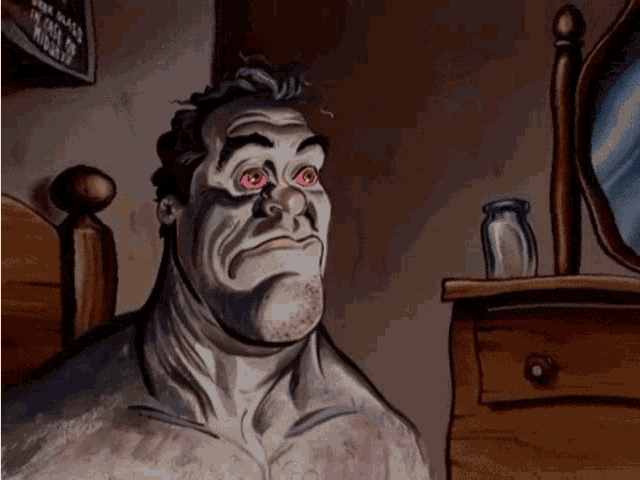With everything going on in the US I am seeing more and more of these takes by Mastodons anarchists and I once again fail to understand how their alternative would work. Especially coming out of an intensively individualized system like capitalism, how do you just do no hiearchies? And why is the State always just the cops and military, would someone think about the infrastructure, hospitals, schools…
I am biased, because I am most definitely a statist. Mainly because I have studied them and work in the public sector. It is surprisingly a lot that goes into seemingly mundane things like city planning or the planning and implementation of services of any kind, you do need experts for it. Even in luxury space communism, someone is going to have to steer the ship and design it.
I don’t know, from real life experience I know that when for example there is an emergency, people do self-organize. But at the same time I have not once experienced this happening without a hierarchy forming almost instantly.
Hopefully Anarchist comrades can chip in, but no state != no government, and no involuntary hierarchies != no hierarchies of any kind.
Government without state would mean that all the different functions that the state currently has, except for the oppressive ones, would be performed by organs that are not centrally organized by an authority with a monopoly on legitimate political violence (the state). How does that actually work in practice? That’s probably one of the main things Anarchists disagree on, so I don’t think there’s a solid answer.
I think it should be fairly self-evident how involuntary hierarchies are only a subset of all hierarchies. I think there’s a bit of a problem here WRT how they’d effectively decide which people are excluded from this arrangement to protect communities, since shooting a fascist sounds an awful lot like imposing an involuntary hierarchy of being dead onto them, but historically speaking Anarchists have done pretty well at defending against fascists so maybe I don’t know what I’m talking about.
But I do have some questions about education: kids probably won’t just voluntarily go to school if you give them a free choice, which I know could be improved with better education that puts their well-being first, but I think learning is something that will always be a little boring to most people so it might still be necessary to coerce children into attending school. 16 and up definitely should be allowed to freely decide for themselves, but I can’t imagine it’d be a good idea to put an 8 year old’s education entirely on their own hands.
One argument against laws and police and prisons (in fact, which is seen in many of the replies) is that they already have a net negative impact on society. Laws are subject to regulatory capture, police are an unaccountable power with a loyalty only to capital and white supremacy, and prisons are a continuation of slavery that renders people psychologically mangled and oriented toward future crime.
In the West, most of the ethical reasoning behind the State is ultimately Hobbesian and reactionary.
If you were a statist who had worked in the public sector in the underdeveloped world, I would value your experience more broadly.
At least a start is that “the state” is not the things under government control as written, but rather the collection of forces and interests that maintain class separation/hierarchy. A sort of pair of demonstrative examples of this point: A private security force that mercs striking workers in the third world are more a part of “the state” than the city council worker who fills in potholes, regardless of who is paying them, their legal connection to the government, or where the profits of their activity go.
Now, you might disagree with this framing, but when you hear someone on the left talk about “the state”, this is what they’re talking about. You can call it whatever you like if you are unhappy with the word choice.
It is also a little grey, its not like “this is definitely the state” and “this is definitely not the state”. Teachers, for instance, tend to lean left and do important work teaching kids and caring for them out of their parents workplace, but will often repeat hegemonic talking points (e.g. Israel good, supply and demand, Gorwell etc.). To say that an individual teacher is a member of comprador statist forces is getting lost in the weeds. We want to focus mostly on structures and institutions (especially at this early stage)
The specifics of how to engage with the state in revolutionary strategy is a (the?) key difference between anarchists and marxists.
At some point, productive forces would mean that all the ships that need to be steered are steered by people who are actualised by steering ships, all the ships will be designed by people who are interested in designing ships etc. At least, that’s the idea. I don’t know if either political philosophy claims to resolve cliques. Either way, it seems like a long way off here in the rich West so I’m not sure if its worth getting too hung up on hypothetical futures.
GOOD post
The comments in that thread seem to be generalizing the badness of the burger state to states in general. The only time an AES country comes up is talking about corrupt cops after the fall of the USSR. Even deeply unserious anarchoNATOists bring up oppression (real and imagined) committed by the tankietarian penispotatoships.
The state doesn’t enable infrastructure to exist, nor hospitals nor schools. People do. And people will still do it without a state. You can look up mutual aid and the book anarchy works for more details on how that would look.
People can coordinate amongst each other without the state or even majoritarian rule (majoritarian rule meaning something like direct democracy, which many anarchists still oppose). On a small enough level, things like consensus can work, although you’ll get a lot of different responses to how large scale projects, like energy grids or rail networks, should operate. The more locally autonomous the solution, the more support it’ll typically get from anarchists though.
That’s not to say they think every decision must be made via consensus. Groups can still empower someone within them to make coordination decisions for convenience. The main idea there is that the coordinator can be replaced at the will of the coordinated, thus holding the coordinator accountable (unlike a boss).






